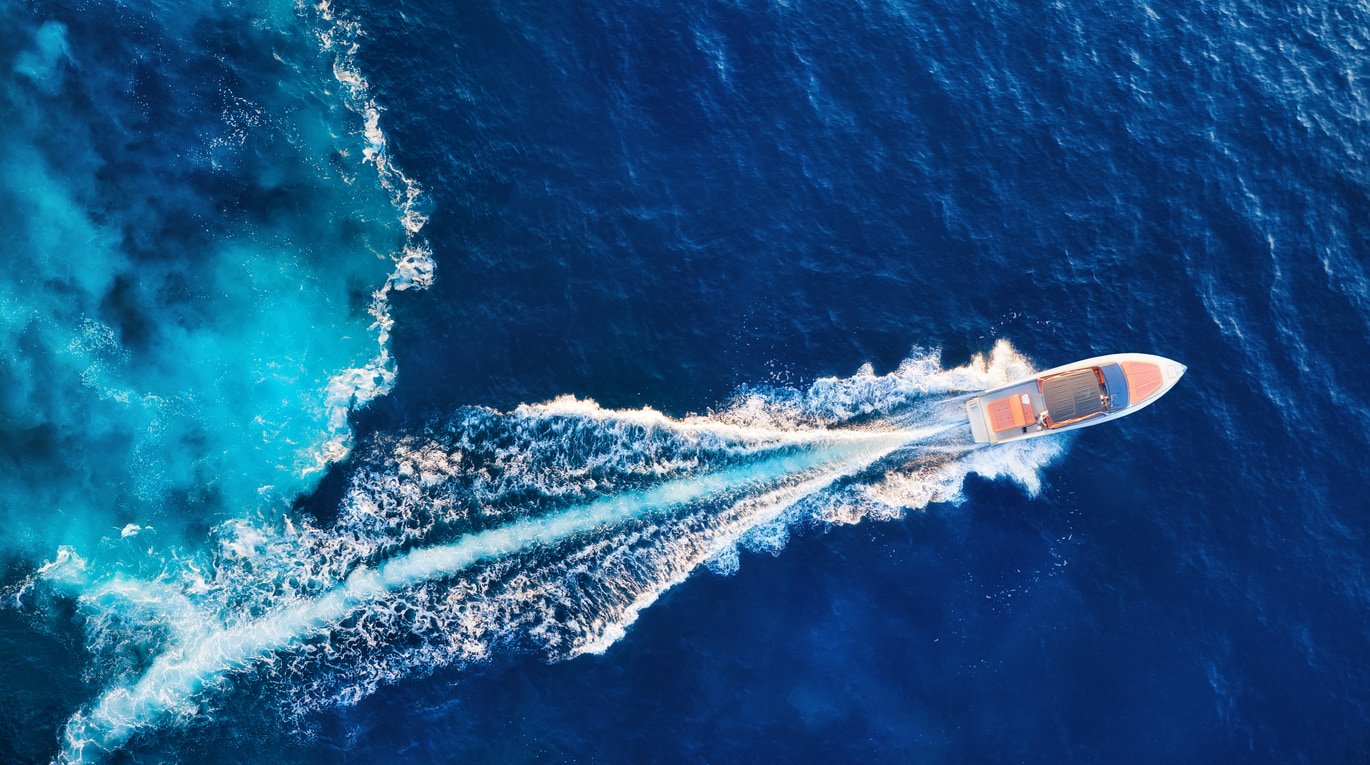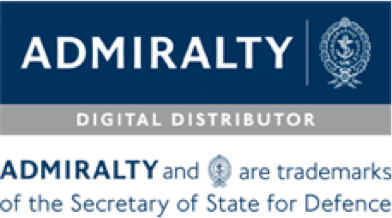Armed with 10 questions, we decided to talk to a Chief Officer who has worked with the team at DSNM for some years as part of his navigation watch duties. What we discovered was beyond the interesting view of the role we expected. Read on and you’ll also discover some fascinating insights into both the role and life as part of a Superyacht’s crew.
Do you ever get nervous about assisting with the navigation and running of an expensive Superyacht?
When you are driving one of these large yachts, trying to squeeze them into a tight berth it can certainly ‘elevate the heart rate’, especially if you throw a bit of wind and current into the mix. Luckily, LARGE fenders help ease the tension somewhat. Jokes aside we are naturally very aware of the costs involved in this business. However, today’s crews have great professionalism. A well-trained crew using clear and safe procedures goes a long way in diluting any nervousness there may be.
What have been the scariest weather experiences you’ve had?
Sure, I guess if you work at sea long enough you are bound to experience a couple of “bumpy days”. I have been close to hurricanes and faced angry mountains of water out in the middle of the Atlantic. The worst weather for me however, has always been in the Mediterranean. The wind can pick up out of nowhere and the short sharp swells can be rather “uncomfortable”. However, I have been lucky to work on well-run vessels with experienced crew, well equipped to deal with those sorts of situations.
Have there been any points in your career that are particularly memorable?
There have been so many moments that have left a mark. It would be difficult to narrow it down to a few. It can be something as simple as standing on the bridge wing of a yacht at 3am in the middle of the Pacific, watching phosphorescent covered dolphins looking like ghosts swimming in your wake to standing on a beach of some tropical island talking to a famous rock star about their “sea turtle sanctuary”.
How do you prepare for big journeys, in terms of passage planning?
Passage planning is a very big part of the responsibility that we as officers have on board. Even though it may not always be the Chief Officer that puts the plan together, our Second Officer is responsible for passage planning on my current vessel, all Officers and finally the Master is responsible for going over the plan with a fine-tooth comb to make sure it is safe. As far as preparation goes, a passage plan is an excellent opportunity for junior crew to get involved with what goes on up in the bridge. We will often delegate parts of the research of a passage plan to our deckhands. Not only is this very good experience, but it is also one of the items in their Training Record Book that needs to be signed off. Once our deckies have gathered information we will go through it with them and fill in any gaps there might be. We use this as a training opportunity to teach the deck crew about publications, pilots, charts, chart correction etc.
In your role, you visit beautiful and exotic places, many that people can only dream of. Do you become a bit jaded by it or do you remain endlessly inspired by it all?
This is something I have definitely been guilty of in the past but am now very aware of how lucky I am to be doing what I do and seeing what I have seen. Any time I find myself starting to feel a bit blasé about a location or port, I will walk up to the highest point on the yacht, one where I have a wide view of where we are. I’ll just stand there and take a minute to stop and look around. It sounds silly I know, but this little thing really helps to give me some “perspective”. I still feel very lucky to be doing what I do. The day that I go up there and don’t feel excited or lucky is probably the day I should stop.
Aside from exotic locations, you probably get some ‘interesting’ requests from owners and guests. Any you can tell us about?
Wow, so many to choose from. One of my favourites was having a guest who had us order Peking Duck from his favourite Chinese restaurant. Seems easy enough, right? Well, the restaurant was in Hong Kong…the yacht was in France…so he sent his private jet to collect it.
Is there somewhere you’ve visited that you could happily live and never move from?
That’s a tough one, there are a few places that are at the top of my list. Palma in Mallorca has always been a special place for me and, being a yachting hub, I could realistically base myself there while working in the industry. On the more exotic side of things, Tahiti & Moorea in French Polynesia are spectacular and I could quite easily pack it all up and move to either one of these island paradises. Finally, there is Cape Town which I am lucky enough to currently call “home”. I guess you will always have a strong connection to the place you are from but that aside, the Mother City as it is known has everything you could ask for – beautiful beaches (granted the water is a little chilly!), incredible mountains, a world-famous wine region as well as an amazing food and restaurant scene.
Is it lonely constantly travelling and are there personal sacrifices you have had to make?
Like everything in life there are always choices and sacrifices to be made and yachting is no different. I think most crew would agree that being away from family and loved ones is the toughest part of the job. I have a little girl back home and having to spend months at a time away from her can be difficult. Luckily, we are starting to see a change in the industry with the introductions of rotational positions on yachts under 3000gt. I feel this will go a long way to keeping experienced crew in the industry longer, especially those with spouses and children back home.
Is it hard living with so many other crew members?
Apart from being away from friends and family I would say this can be the next big challenge of working on a yacht. I think it takes a particular type of person to succeed at living in confined spaces with so many other people. I have been very fortunate in my career to have worked with some amazing crew, many of whom are now very close friends. From my experience, it all starts with the Captain as they set the tone for how the rest of the crew interact. If you have a Captain that genuinely cares about the well-being of the crew and works hard (with the help of their senior crew) to ensure that each crew member, no matter how junior or senior, is held to the same standards, that crew will often be a happier and more content crew. Don’t get me wrong, as a senior there are certain perks that have been earned and junior crew members soon come to understand that like any job you need to work your way up and “do your time”.
Why do you use DSNM?
I first started working with David and Alicia over 11 years ago. From the beginning, their level of service has been a class above the rest. Their willingness to listen to feedback and suggestions and to adapt their systems to improve service or efficiency has always been a big selling point for me.







